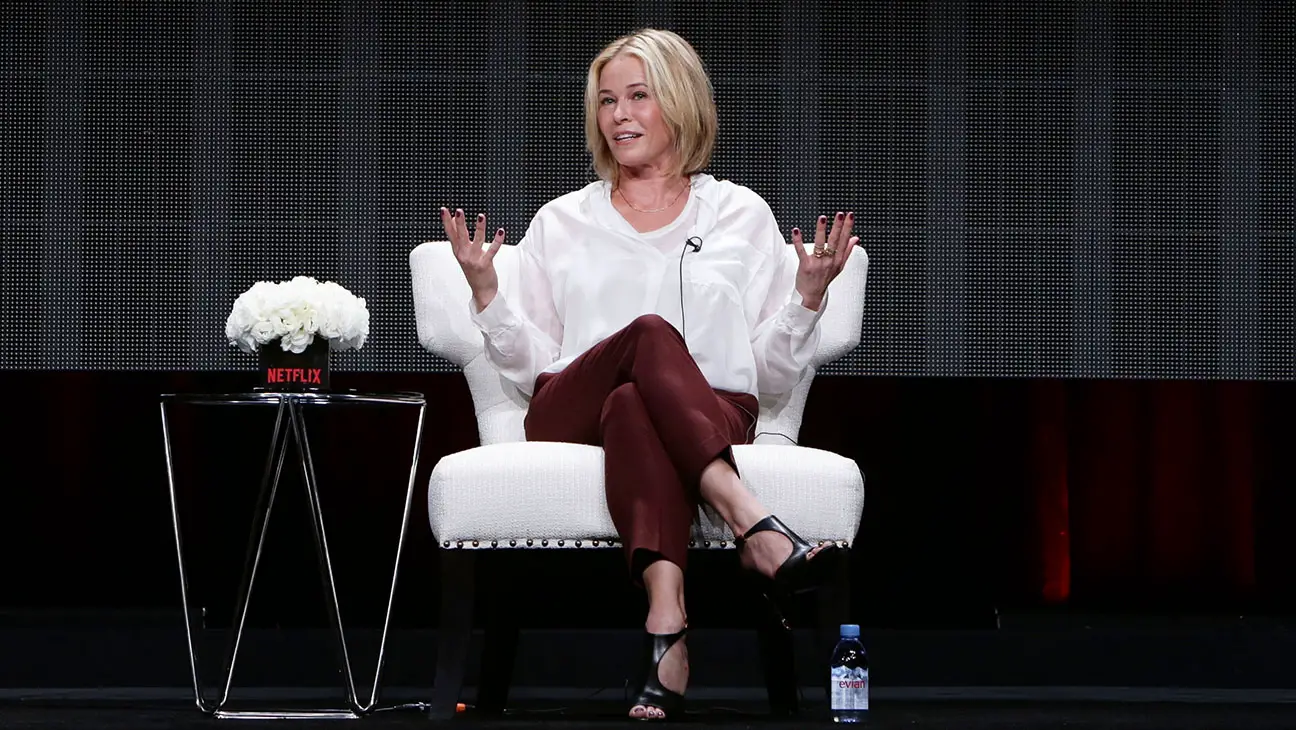Following the election results of the 2016 presidential race, many celebrities and laypeople felt the need to do something more, be more vocal and try to understand how the country got to the state it’s currently in. Chelsea Handler, brash comedian and talk show host, felt this collective call to action and ran with it like no one else. Now in her second season of the talk show “Chelsea” on Netflix, she is using her platform and celebrity privilege to bring attention to the issues that plague the nation, as well as attempting to make sense of its messy political landscape, in a provocative and entertaining way.
While shows from Handler’s past season have also delved into politics with some jabs to politicians sprinkled throughout, and conversations with fellow celebrities were had, the tone for this season is colored with a passion and underlying sense of responsibility that is noticeable from even the first episode.
Even the guests on her show are more politically active, inviting transgender advocates, politicians, and members of the media working in other areas that aren’t focused on a straight, white and homogenized group of people. Noticeably, more people of color, as well as women, have appeared on her show in the current season, and this is no coincidence to Handler, who seeks to diversify the guests and voices featured on her show.
Senators, such as Al Franken and Elizabeth Warren, have both sat down with Handler to discuss their new written works, the issues they face in legislation as members of a now minority party as well as diving into salient topics—healthcare, minimum wage and bipartisan relationships, or lack thereof—that the entire nation closely pays attention to. By having in-depth important conversations with politicians, and delivering it to the audience in a humorous and no bullshit way, Handler takes the newly emerging model of comedic political discourse in the entertainment industry today, and elevates it.
The common thread that ties together each episode is the open disdain, critique and impassioned speech against President Trump that Handler has no problem of letting loose. In many episodes, Donald Trump has the exclusive privilege of being on the receiving end of some of the most creative string of swear words by Handler that this writer has ever seen.
Calling Trump out on his contradictory statements and tweets that are hypocritical in hindsight—such as the enormous amount of tweets by Trump condemning former president Barack Obama for golfing, even though Trump golfed more in one hundred days than Obama did in eight years—Handler has made it clear that her support does not lie behind the current president.
In an episode from earlier this season titled “Ladies and the Trump,” Handler has no qualms ripping apart the current administration’s behavior at the one hundred day mark. Even Press Secretary Sean Spicer’s ineffectiveness at interacting with the press is poked fun at, as the episode opens with “Sean Spicer’s Defensive Speaking Techniques,” turning the aggressive nature of Spicer’s attempts at informative White House press briefings into an infomercial for a fake product to help others avoid speaking on difficult subjects.
Being an open opponent to much of what the current president does, as well as choosing not to hide it in diplomatic, or even thinly veiled polite speech, as Handler does, opens her up to criticism of her increasing politicization. Unfazed by the clap back from her critics, Handler posted an Instagram video in which she defends herself of being “too political” by pointing to her reasons for speaking out so forcefully on her show. As a white, economically privileged woman of influence, she feels like she needs to speak out on behalf of the women, Muslims, gay people, trans people and other marginalized groups that are directly affected—many times negatively—by the decisions and policies being pushed by the administration.
In many ways, a lot of the freedom for Handler to voice her pointed and impassioned criticism toward people like President Trump is attributed to hosting her show on Netflix. Her counterparts in the entertainment news genre, such as “Full Frontal with Samantha Bee” and “The Daily Show with Trevor Noah” operate within the confines of network and cable television, which restricts speech and content for its audiences in a lot of ways that Netflix, much like HBO, does not have to abide by. This ability to say what she wants and how she wants to say it, has enabled Handler to become as political as she chooses, while not filtering the insightful thoughts that make Handler the comedic social commentator that she is.
One of the most admirable things to note about Handler is that she admits what she doesn’t know. In a recurring taped skit on her show, Handler clearly shows that she is sometimes obtuse on salient topics, and will bring another, more qualified, guest on the show to provide analysis and explanation. This is epic, as so many talk show hosts, or people in the media in general, tend to purport themselves as experts on pretty much everything, which is disingenuous to not only themselves, but to the audience as well. So although she may not be the most knowledgeable or capable host when it comes to political or social issues, she admits her faults and generally uses it as a teaching moment for both her and the audience, which is refreshing and much needed.
Chelsea Handler, like any human being in the media, has her problematic moments that are displayed for an entire audience of people to pick apart and chastise her for. Some may still believe that she is too political and bold for the kind of work that she does. But Handler has never been one to suppress her thoughts and viewpoints, even when they aren’t political. If she continues to use her place of privilege to bring attention to the issues and plight of the people that truly need it, then the shock of her delivery to the sensibilities of some of her viewers is worth it, and may just be the push that they need to realize what constitutes a real issue that requires their care and attention.

















